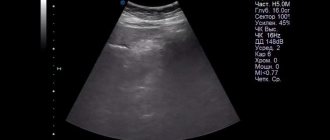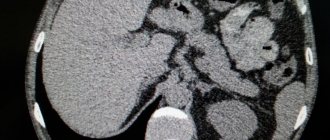Pancreatitis and the army in 2021
If the diagnosis is confirmed, the examination takes place under Article 59 of the Schedule of Diseases, which reads as Other diseases of the stomach and duodenum, diseases of the liver, gallbladder, biliary tract and pancreas. Fitness categories are assigned by the military medical commission as follows:
- a) with significant impairment of functions – D;
- b) with moderate dysfunction and frequent exacerbations – B;
- c) with minor dysfunction – B.
Point “a” includes:
- cirrhosis of the liver;
- chronic progressive active hepatitis;
- chronic recurrent severe pancreatitis (persistent pancreatic or pancreatogenic diarrhea, progressive exhaustion, polyhypovitaminosis);
- consequences of reconstructive operations for diseases of the pancreas and biliary tract;
- complications after operations (bilious, pancreatic fistulas, etc.).
Point “b” includes:
- gastritis, gastroduodenitis with impaired secretory, acid-forming functions, frequent exacerbations and malnutrition (BMI 18.5 - 19.0 or less), requiring repeated and prolonged hospitalization (more than 2 months) with unsuccessful treatment in a hospital setting;
- chronic hepatitis with impaired liver function and (or) moderate activity;
- chronic cholecystitis with frequent (2 or more times a year) exacerbations requiring treatment in a hospital setting;
- chronic pancreatitis with frequent (2 or more times a year) exacerbations and impaired secretory or endocrine function;
- consequences of surgical treatment of pancreatitis resulting in a pseudocyst (marsupilization, etc.).
Point “c” includes:
- chronic gastritis, gastroduodenitis with minor disruption of secretory function with rare exacerbations;
- biliary dyskinesia;
- enzymopathic (benign) hyperbilirubinemia;
- chronic cholecystitis, cholesterosis of the gallbladder, pancreatitis with rare exacerbations with good treatment results.
There are chances to be released from service, but you need to confirm the diagnosis, the severity of the disease, dysfunction of the pancreas, frequent relapses, and ineffective treatment.
Article 59 – categories of conscripts
All young people of military age undergo a medical examination in Russia every year. Several specialists of different profiles take part in it (therapist, neurologist, psychiatrist, surgeon, ENT doctor, ophthalmologist). The work of these doctors as part of the medical examination of conscripts is regulated by a document called the “Schedule of Diseases.” This document presents a list of articles, each of which corresponds to a specific group of diseases and pathological conditions.
Article number 59 includes most diseases of the gastrointestinal tract, including pancreatitis. Each article is divided into several categories that determine the conscript’s level of suitability for military service:
- “A” - the conscript is fit for military service,
- “B” - fit with restrictions: with this category, a young man cannot be drafted into any branch of the military (service in the Airborne Forces, Navy, border troops, tank troops, and submarines will be prohibited),
- “B” - limited suitability, that is, the young man is enlisted in the reserves and is not called up for military service during peacetime, but during war he is subject to conscription,
- “G” - temporarily not called up,
- “D” - completely unfit for military service (meaning peacetime and wartime).
What do the illness schedule items say?
Article 59 of the “Schedule of Diseases” contains 3 points according to which conscripts are divided according to the severity of pancreatitis diagnosed in them: on the severity of any violation of any pancreatic function and on the frequency of exacerbations of the disease recorded in medical documents.
Point "a"
The indication of this item implies a diagnosis of severe pancreatitis with a pronounced decrease in one or more organ functions. The exocrine and endocrine activities of the organ are taken into account. Main characteristics of point “a”:
- frequently developing severe exacerbations with painful symptoms,
- almost complete absence of episodes of remission with the patient feeling normal,
- identification of serious complications: formation of pancreatic fistula, development of diabetes mellitus, severe vitamin deficiency, exhaustion due to pancreatogenic diarrhea,
- condition after surgical treatment (organ resection) due to developed pancreatic necrosis or pancreatic abscess.
If a conscript falls under paragraph “a” of Article 59, he is assigned category “D”, he is not accepted for service, he is given a military ID, and a corresponding note is made in his passport.
Point "b"
This point means a protracted chronic inflammatory process in the pancreas, accompanied by:
- development of 2 or more exacerbations in 1 year,
- symptoms of moderate dysfunction of the gland (enzyme-forming and insulin-forming).
According to this point, a young man of military age corresponds to category “B” and has limited fitness.
Point "c"
This subsection includes chronic pancreatitis with the following characteristics:
- rare exacerbations of the disease (less than 2 times a year),
- the presence of persistent long-term remissions,
- satisfactory response to drug treatment,
- minor disturbances of any gland functions.
According to clause “c” of Article 59, a young man of military age is eligible for category “B”.
How to confirm the diagnosis
Pancreatitis is an inflammation of the pancreas caused by external and internal factors. The enzymes necessary for digesting food are not thrown into the duodenum, but are activated while in the stomach. This leads to damage to mucosal tissue, digestive disorders, and painful manifestations. Self-digestion leads to the accumulation of toxins in the body, which enter other organs through the blood - the brain, heart, liver, lungs, kidneys. Pancreatitis entails dysfunction of the liver, gall bladder, stomach, and duodenum.
Experts distinguish acute pancreatitis with pronounced symptoms, chronic - with a sluggish course, constant poor health, recurrent - a chronic disease with frequent exacerbations. To confirm the diagnosis, ultrasound, FGDS, laparoscopy, blood tests for amylase, and urine tests for diastase are used. However, the diagnosis of acute and chronic forms of pancreatitis is somewhat different.
To confirm the diagnosis, you need to seek help from a gastroenterologist, therapist, and undergo an examination. But in order to prove a recurrent, chronic form, you need to contact a specialist every time there is an exacerbation. All data must be recorded in the medical record. It indicates symptoms, duration of the exacerbation phase, effectiveness, ineffectiveness of therapy, stay in hospital treatment, recommendations, verdicts of specialists.
Will they be accepted into the army with a single case of pankeatitis?
Inflammation of the pancreas with a mild course of the disease already requires more careful consideration. Rare exacerbations (once a year), a good response to treatment, a slight decrease in gland function, may become the basis for service. The decision of the draft commission will correspond to paragraph “c” of Article 59 of the Republic of Belarus: “working” fitness category “B-3” with a limitation in the choice of troops. Those with a mild form of chronic pancreatitis are recruited into the army. Therefore, each case of exacerbation must be recorded by a doctor, or it is necessary to have an extract from the hospital about the treatment performed. It is also important to have medical data on a decrease in the functions of the gland. If you have any questions, we will be happy to advise you in our VKontakte community.
Pancreatitis is a disease that can develop at any age, including children, adolescents and young adults. In this regard, young men of military age who suffer from inflammation of the pancreas are often interested in whether they are accepted into the army with pancreatitis?
Fitness for service in the Armed Forces of the Russian Federation is determined in accordance with a document called the “Schedule of Diseases.” Pancreatitis is mentioned in Article 59 of this document, and admission to military service or exemption from military duty depends on the severity of the disease.
Do people with chronic pancreatitis join the army?
Acute pancreatitis is characterized by a clear clinical picture and severe manifestations. This condition is caused by endogenous intoxication. The effect of activated pancreatic enzymes is similar to snake venom. The body is poisoned from the inside. The more intensely pancreatic enzymes are produced, the worse the patient feels. Acute pancreatitis is usually treated in a hospital.
The chronic course of the disease is characterized by constant poor health, vague symptoms - nausea, heaviness in the right side, weakness, belching, heartburn, bowel dysfunction, etc. External and internal factors can provoke an exacerbation with increased unpleasant symptoms, most often food, alcohol, smoking , stress, poor diet, rest, sedentary lifestyle or excessive physical activity.
Whether someone with chronic pancreatitis will be accepted into the army depends on the frequency of exacerbations per year. Category “B” is assigned to relapses at least 2 times a year, stay in hospital for at least 2 months during the year. That is, if a conscript has recurrent pancreatitis, but there is no official confirmation of this, he is drafted into the army with fitness category “B”. At the same time, there is a possibility of commission if relapses begin already in the army.
Pancreatitis in young men of military age
Many parents and their sons who have reached conscription age are often interested in whether they will enlist in the army with pancreatitis.
The stage, form of pancreatitis, and the degree of suitability of a young man for military service are determined by Article No. 59 of the “Schedule of Diseases” of a citizen of the Russian Federation. The section has 3 points that establish the form of the disease and the degree of suitability of the conscript for military service.
Point “A” is a form of pathology with significant impairment of endocrine and secretory function. This suggests that the patient has significantly impaired production of glucagon, insulin and the release of these hormones into the blood.
The consequences of such disorders are the formation of a serious endocrine disease associated with deviations of the islet cells of the gland. The excretory function includes the release of digestive enzymes by the organ, the absorption of food, i.e. participation of the gland in the digestion of food.
Point “B” - there are moderate disorders of the pancreas, the patient exhibits relapses of chronic pancreatitis. Their frequency is at least 2 times a year.
What diseases are not accepted into the army?
In case of acute pancreatitis, a fitness category of “G” is assigned and a temporary delay of 6-12 months is given for treatment. Then a second commission is carried out. In case of chronic pancreatitis, you can count on release in the following cases:
- The disease is severe, frequent relapses are observed, and there are no periods of stable remission. The functions of the pancreas are impaired.
- Exacerbations occur at least twice a year, secretory and/or endocrine functions are impaired. The treatment does not provide a lasting therapeutic effect.
In other situations there is no basis for exemption from military service.
How to confirm unfitness for military service?
To assign a young man to category “D” or “B” and exemption from service, the presence of symptoms and the severity of the pathology must be confirmed by relevant documents.
To do this, you need to submit the following documentation to the commission:
- Extract from the outpatient card from the clinic. It should describe in detail the conscript’s current condition and medical history.
- Extracts from specialized hospitals.
- Results of the surveys carried out. Blood tests, urine tests, ultrasound scans of the pancreas, etc.
- Conclusion from a gastroenterologist.
If the young man is unable to present a list of this documentation in full, and the commission objectively finds clinical symptoms of the disease, the young man is sent for additional inpatient examination. The conscript is assigned category G - temporarily unfit. In this option, the young man should be further examined on an outpatient basis.
Explanation about items
The paragraphs of Article 59 indicate in which case it is possible to receive a deferment due to illness, to be drafted into the army or to be unfit for service.
- Point A - pancreatitis with disruptions in the production of enzymes and hormones.
- Point B - pancreatitis with minor disturbances in the production of pancreatic enzymes and hormones, leading to exacerbations several times a year.
- Point B - pancreatitis with minor functional disruptions in the functioning of the pancreas.
Pancreatitis, after a month of therapy there is another exacerbation, pain
Valery
3004 views
October 1, 2020
Hello! I have been undergoing treatment since August, before that I had periodic pain, but in August it got worse. The doctor diagnosed: reactive pancreatitis, chronic pancreatitis, chronic cholecystitis, chronic. gastritis of mixed type, unstable remission, not associated with nr. I was prescribed Razo 2 times a day before meals for 2 weeks, then 1 time in the morning, Duspatalin 1 time in the morning, Creon 25,000 2 times with food for 1 month, Ursosan 500 at night and Odeston 2 tablets at night. I took it for a month, there were noticeable improvements, but the treatment was continued. Razo was replaced with Controloc 1 time in the morning, Creon 25,000 with the main meal 1 time, Duspatalin 1 at night, Rebagit 1 three times a day and Phosphogliv 2 to twice a day. I took this course almost until mid-September, but on the 20th I had another attack - my tongue was coated, the pain radiated to my back. No matter what you eat, after a certain time, aching pain begins. This has already raised my nerves. In the morning you wake up and intuitively begin to look for pain in your stomach, touch it, feel it - it hurts/doesn’t hurt. As a result, sometimes you get frustrated and start to get sick. Let me add that I didn’t follow a diet as such, but switched to milk, porridge with milk, and gave up sausage, fried foods and spices. Reduced my diet. I used meat to make myself a chicken roll for breakfast. But before the new attack, I ate baked meat for breakfast for several days, ate lettuce and greens. I think that this is what created a new complication. I visited the doctor again with complaints of pain and received the following recommendations: Control 20 mg in the morning, Creon 25,000 2 times with meals, Ursosan 500 at night for 2 weeks, Odeston 2 tablets at night for 2 weeks and 5 injections of 2 ml of 0.2% platifillin . I haven’t started taking injections yet, I’m afraid. In general, it seems that the course is not very complete, maybe something should be added? I saw the doctor 2 days ago, after that I decided to fast for 24 hours - only water, liquid tea, and used phosphalugel to save myself from the aching pain - I had to drink 2 servings per day to calm the pain. The pain begins to come more in the evening towards night. After a day of fasting, I feel better. I want to start eating oatmeal with water and boiled carrots. Is it possible to consume milk and fermented milk products during this period? There is so much information that you don’t know where the truth is. I'm 50 years old, I don't drink or smoke. Working more on the computer, perhaps this provokes the disease. If possible, I would like to adjust the course of treatment. Thank you!
The question is closed
pancreatitis
relapse
pain
The essence of pathology and its main forms
In medical practice, there are two main forms of pancreatitis - acute and chronic. A sharp attack of exacerbation, accompanied by piercing pain in the lower part of the chest or of a girdling nature, as well as with increased temperature, fever, nausea and vomiting, may indicate an acute form of the disease. If the patient subsequently experiences repeated attacks, the chronic form is diagnosed. Its symptoms, in addition to those characteristic of acute manifestations, include weight loss and indigestibility of certain substances.
To correctly understand the answer to the question of whether people are recruited into the army with acute or chronic pancreatitis, it is necessary to understand the specifics of the disease, its characteristics, and the dangers of exacerbations. Unfortunately, most often the sick themselves do not fully understand the essence of the disease, and therefore neglect preventive measures. Therefore, first, let’s look at what pancreatitis is.
Every human body has a pancreas, a small organ located behind the stomach. It secretes pancreatic juice with a high concentration of enzymes necessary for digesting food. To perform their function, enzymes enter the intestines, and in case of failure, they begin to work directly inside the gland, causing damage to the walls and inflammation of the tissues, i.e. as if “eating” her from the inside. This process causes an attack of severe pain, and then the manifestation of other symptoms. Timely correct treatment and compliance with measures to prevent subsequent attacks in most cases leads to complete remission of the disease. If this is not the case, or the factor provoking the malfunction is not eliminated, after a while the attack will appear again. In this case, a chronic course of the disease is diagnosed, and it threatens with dangerous consequences, for example, the development of diabetes mellitus, kidney failure, and an oncological process in the pancreas.
Are they recruited into the army with pancreatitis in Ukraine, Belarus and other CIS countries?
Ukraine, Kazakhstan, Belarus and other CIS countries have similar regulations for conscription to military service, as in Russia. Conscripts with pancreatitis in these countries also undergo a military medical commission and receive the appropriate fitness category, according to their state of health. Considering the severity of the disease, the frequency of exacerbations, the severity of endocrine or exocrine dysfunction, conscripts with pancreatitis admit:
- Unfit for military service.
- Limited availability.
- Eligible with restrictions.
When a conscript is diagnosed with pancreatitis, military service is often contraindicated. When passing the draft board, the young man is assigned a category of fitness for military service. The specialist is obliged to carefully study all medical documents prepared in advance by the conscript.
Details about the points of the Schedule of illnesses
Taking into account the information provided in the Schedule of Diseases, you can clarify the situation regarding the main question: “Do they enlist in the army with pancreatitis?” In Article 59 you can familiarize yourself with a detailed list of complications and the degree of development and course of this disease in order to know whether a young man of conscription age is suitable for military service.
Depending on the health status of the young person, after passing a medical commission, he is assigned a certain group.
Group “D” is assigned in the following cases:
- severe form of chronic pancreatitis with frequent relapses;
- type 1 diabetes mellitus;
- diarrhea of pancreatogenic origin;
- general exhaustion of the body;
- multivitaminosis and insufficient amounts of microelements in the body.
In addition, it is also diagnosed when a pancreatic fistula is diagnosed or a young person has undergone surgery to remove the gland due to necrosis or abscess.
Such a young man will not be accepted into the army; he does not need to submit documents to the military registration and enlistment office. A military ID is issued and a note about removal from military service is placed in the passport. The army is contraindicated for chronic pancreatitis with frequent recurrent conditions.
Group “B” is assigned when disorders of the pancreas are diagnosed and there are exacerbations of the disease at least twice a year.
In this case, a deferment from the army is given for pancreatitis (in peacetime). He is sent to the reserve. He will be called upon in the event of hostilities.
Group “B” indicates that the conscript undertakes to serve in the army. In this case, chronic pancreatitis is characterized by:
- persistent remission;
- effective treatment;
- exacerbations occurring no more than twice a year;
- minor disturbances in the functioning of the digestive system and the functioning of the gland.
In this case, the young man will not be accepted into certain troops (naval service, airborne, border, submarine and tank troops).
Sometimes they are assigned category "G", which implies a deferment from military service for six months, during which the conscript must undergo additional examination or treatment.
Thus, whether someone with chronic pancreatitis is accepted into the army depends on many factors: the frequency of exacerbations, possible complications, stage of the disease, concomitant diseases, etc.
Documents to confirm pancreatitis
To receive category “B” or “D”, which are exempt from military service, a conscript must prepare documents indicating the presence of pancreatitis, indicating the level of severity of the disease, the frequency of exacerbations, and the functional state of the pancreas at the current moment.
Must be presented:
- original medical records (their certified copies) with seals and signatures;
- conclusions from the clinic at the youth’s place of residence with a description of the medical history and current condition;
- certificates obtained from a gastroenterologist;
- data on the results of laboratory and instrumental examinations (ultrasound, x-ray and others);
- information about cases of inpatient treatment (department of gastroenterology or surgery) associated with deteriorating health (extracts from the medical history).
In the absence of some of the above documents, if there are compelling reasons indicating the severity of the disease (specialist opinions, tests), the doctors of the medical commission can give the conscript a referral for additional examination to a military hospital. It is also possible to assign a category of fitness for service “G”, which implies a temporary deferment of 6 months for examination and treatment.
If pancreatitis is detected during service, the soldier is expected to be given a deferment for a certain period of time or a full sick leave.
The problem can only be resolved by a military commission.
Thus, the question of whether someone with chronic pancreatitis is accepted into the army is always considered depending on the degree of its severity. A conscript may be released from service completely, on a limited basis, or drafted into certain troops.
For some of the intricacies of passing a medical examination at the military registration and enlistment office, watch the video:











